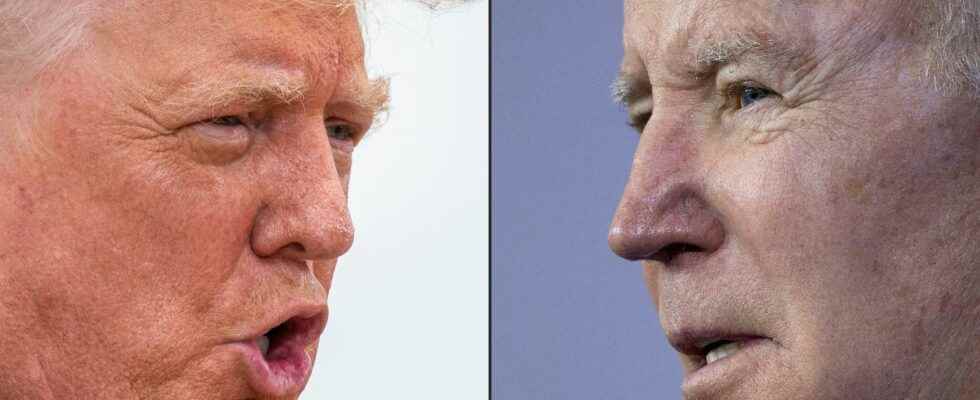As an unexpected opportunity to see his best enemy share his greatest worries, Donald Trump wondered aloud, on his social network Truththis Thursday, January 12, “when will the FBI do [it] a search of Joe Biden’s many residences, or even the White House?” discovery, first in the premises of the laboratory of ideas founded by Joe Biden, then in his private residence in Wilmington, of classified documents.
At first glance, this story therefore seems similar to the case that has shaken, since August, Donald Trump, suspected of having kept confidential documents in his private residence in Mar-a-Lago, Florida. “According to a 1978 law, outgoing administrations must send all their documents to the National Archives”, reminds L’Express the writer Dominique Simonnet, co-author, with Nicole Bacharan, of the book The Great Days That Changed America (Perrin, 2021). However, Joe Biden, vice-president of Barack Obama between 2009 and 2017, and Donald Trump, president between 2017 and 2021, did not fully respect it. Thus, after appointing a prosecutor to investigate the documents taken away by Trump at the end of his mandate, the federal Minister of Justice appointed another, this Thursday, to shed light on the shortcomings of Joe Biden.
The key concept of intentionality
Having passed the observation that, in both cases, no document likely to affect the security of the State should have been kept elsewhere than in the archival shelves, the many distinctions between the two cases appear. “The big difference relates to the notion of intentionality”, underlines Dominique Simonnet. “When they discovered the documents in early November, Joe Biden’s lawyers immediately notified the National Archives, and looked for them elsewhere. In short, they belatedly complied with the law. “
The case of Trump is more problematic, since it is to be considered in the reverse process: it was the National Archives that found that files were missing, and asked for them. “Donald Trump left with trucks full of files, with the desire to keep them at home,” notes the journalist. Not wanting to return them, the State had to use force to recover them, with the famous search carried out by the FBI. “With the elements we have to date, we can think that there was negligence on the side of Biden and a desire to subtract on the side of Trump”, notes Dominique Simonnet. Investigators also suspect the former president of having violated an American law on espionage which very strictly regulates the possession of confidential documents.
In Le Figaro, this January 11, the historian Nicole Bacharan estimated that it was “very unlikely that the Biden case would go further from a judicial point of view”. Unless the revelation, this Thursday, of documents kept in the garage of the president’s house in Wilmington, does not encourage the prosecutor to go and check if there would not be others elsewhere.
Nevertheless, these important distinctions may well turn out to be, in the eyes of the American public, insignificant details. “The Republicans will confuse the two cases, say that it’s even worse for Biden, in order to maintain the idea that the Democrats are all corrupt,” predicts Dominique Simonnet. Because if this negligence escapes legal proceedings, it nevertheless constitutes a major political fault, which will “even more undermine the exercise of American democratic life”. For example, how to justify to voters that this affair dating from the beginning of November, that is to say a month before the Midterms, is not made public until two months later?
